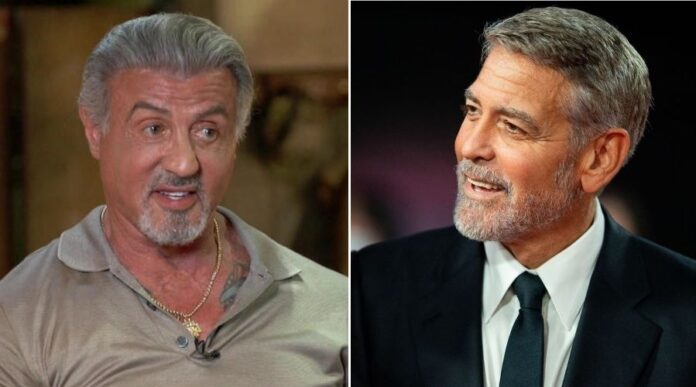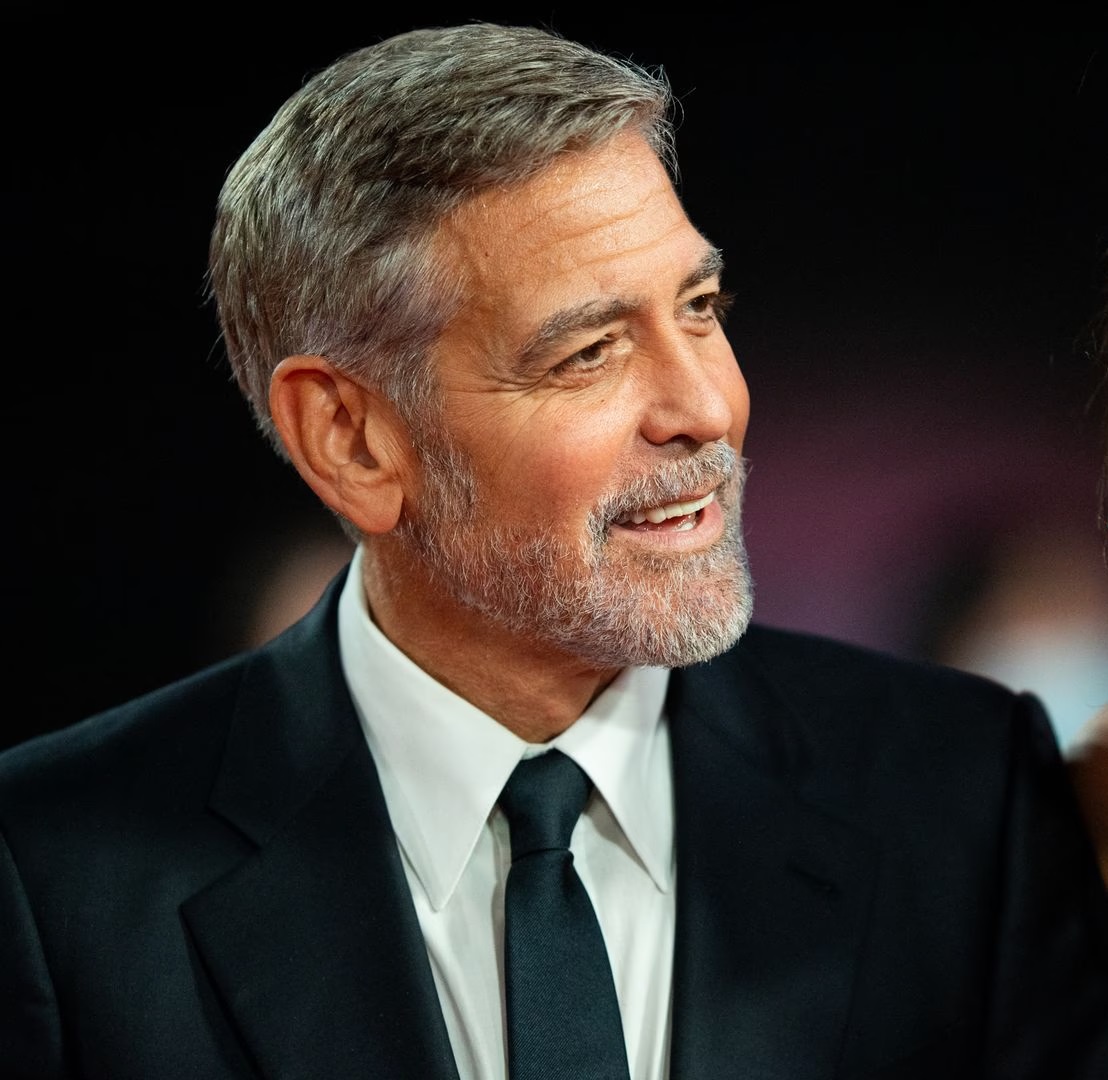In a surprising and candid declaration, Sylvester Stallone has delivered a powerful critique of George Clooney’s filmography.
The renowned action star and cultural icon has announced that he will never again watch a film featuring George Clooney, citing strong objections to what he perceives as the pervasive “wokeness” in Clooney’s work.
Stallone’s remark, “I’ll never watch another one of George Clooney’s movies again, not even if they paid me,” is a striking example of how personal opinions on film content and political themes can resonate on a larger scale.
The action star’s comments reflect a broader discourse about the influence of political correctness and “wokeness” in contemporary cinema.
In his statement, Stallone criticized Clooney’s films for what he views as an overemphasis on progressive themes. “The wokeness just never ends with Clooney,” Stallone added, emphasizing his frustration with what he perceives as an intrusion of political messaging into entertainment.
This critique positions Stallone’s views within the ongoing debate about the role of politics and social issues in modern filmmaking.
Stallone did not stop at criticizing Clooney’s movies; he also launched a broader attack on the actor’s public persona.
He described Clooney as “a perfect example of everything wrong with this country.” This comment underscores Stallone’s dissatisfaction with the way celebrity figures engage with social and political issues, reflecting a growing sentiment among some audiences who feel alienated by the perceived intrusion of these themes into popular culture.
The term “wokeness” has become a contentious buzzword in cultural discussions, often used to describe efforts to address social justice issues and inclusivity in media. For many, it represents a positive shift towards greater representation and awareness.
However, for others, it can feel like an imposition that overshadows storytelling and entertainment. Stallone’s critique taps into this divide, suggesting that the focus on progressive themes in Clooney’s films detracts from their entertainment value.
The clash between Stallone and Clooney is emblematic of a broader cultural conflict. While Clooney, known for his advocacy on various social issues, often incorporates these themes into his work, Stallone’s comment reveals a resistance to this approach. This disagreement highlights the tension between differing views on how social issues should be addressed in the arts.
The reaction from the public and fans has been mixed. Some share Stallone’s sentiments, expressing frustration with what they perceive as an overemphasis on political correctness in entertainment. Others defend Clooney, arguing that addressing social issues is a crucial part of modern storytelling and that Stallone’s comments reflect a misunderstanding of the role of politics in film.
Stallone’s comments also reflect broader debates about the role of celebrities in political discourse. As public figures, actors like Clooney often use their platforms to promote social and political causes. However, this can lead to polarization among audiences who may prefer a more apolitical approach to entertainment. Stallone’s remarks highlight the challenges faced by celebrities who engage with contentious issues and the diverse reactions they can provoke.
As the entertainment industry continues to evolve, the debate over “wokeness” and political themes in film is likely to persist. Stallone’s strong statement against Clooney’s movies is a reminder of the complex relationship between entertainment, politics, and public opinion. Whether this will lead to a shift in how films are made and received remains to be seen.
Sylvester Stallone’s declaration that he will no longer watch George Clooney’s films is more than just a personal opinion; it reflects a significant cultural debate. His critique of Clooney’s embrace of “wokeness” and political themes highlights ongoing tensions between traditional and progressive views in entertainment. As the discourse continues, it will be interesting to see how both the industry and audiences navigate these complex issues and whether they influence the future of cinematic storytelling.

















